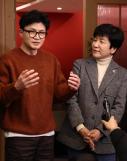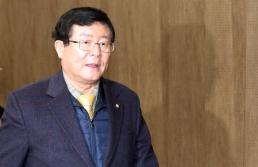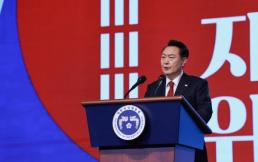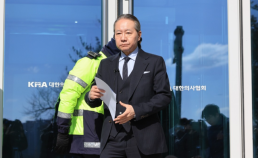 |
||
| An Areva-designed EPR plant being constructed in Flamanville, France. | ||
The Korean bid has surprised more-established competitors - including industry leader Areva SA of France - as well as officials in the United Arab Emirates (U.A.E.), who are examining bids for a contract that could be worth as much as $40 billion to build and run the Arab world's first nuclear-power plants. U.A.E. officials could award the contract as early as the next few weeks.
Three groups have been short-listed for the U.A.E. deal, according to people familiar with the situation.
Early in the bidding process, many observers expected a two-horse race between a French consortium including Areva, GdF Suez SA, Electricité de France and Total SA and a U.S.-Japanese consortium including General Electric Co. and Hitachi Ltd.
But the Korean bid has emerged as "far more competitive than anyone first thought," according to a person familiar with the situation. The bidding group is led by Korea Electric Power Co., construction units of the Samsung and Hyundai business groups, and Westinghouse, a unit of Japan's Toshiba Corp.
Indeed, in an effort to bridge the cost gap with the cheaper South Korean bid, the French group revised its own offer and proposed to build fewer reactors than it initially planned, according to people familiar with the matter.
U.A.E. and company officials declined to comment on the contest, citing confidentiality agreements.
The U.A.E. deal calls for the winner to spearhead the development, construction and operation of nuclear reactors and supporting facilities in Abu Dhabi, the biggest and richest of the U.A.E.'s seven semiautonomous emirates.
The U.A.E. won't enrich its own uranium for reactor fuel, due to political and security concerns, but instead will buy it from third parties under the auspices of the International Atomic Energy Agency.
The global nuclear industry is dominated by France, Japan, the U.S. and Russia.
But, with more than half of the world's 439 nuclear reactors expected to be retired by 2030, and nuclear power plants gaining appeal because they don't emit greenhouse gases, demand for nuclear technology is expected to grow sharply, potentially offering new players room to make their mark internationally.
Analysts say that the trajectory of the Korean nuclear industry could depend on the outcome of the U.A.E. contract.
If the South Korean team wins the project, it would mark the first time the country's nuclear industry has exported its know-how.
The U.A.E., one of the world's largest oil exporters, is looking to build as many as four nuclear reactors as part of a plan to diversify its economy.
The oil-rich emirates don't have large quantities of cleaner-burning natural gas, and government planners have identified nuclear energy as the preferred choice to meet their fast-growing power needs.
The U.A.E. contract is unusual by industry standards because the country has no nuclear experience.
As a result, it is seeking not only the equipment necessary to build its first nuclear reactors, but also an operator to run the plant. This differs from the typical pattern, in which nuclear-engineering companies supply reactors to established power companies, who know how to operate them.
In a sign of the West's political and security concerns about transferring nuclear technology to the Middle East, the tender process for the contract was delayed by prolonged negotiations between the U.S. and the U.A.E. on a nuclear-cooperation treaty. That pact, signed this year, makes it legal for U.S.-based companies to sell such technology to Abu Dhabi.
The person familiar with the matter said that all of the short-listed groups had extremely high technical merits, and that a winner hasn't been chosen
Officials involved in the tender process say that, on top of technical merit, the economic and strategic ties that the bidding companies and their governments have with the U.A.E. will be a factor in the outcome of the nuclear-plant contest.
France, which dispatched Trade Minister Anne-Marie Idrac to the U.A.E. to lobby for the French bid, strengthened its relationship with Abu Dhabi this year by opening a military base in the U.A.E.
GE, whose chairman and chief executive, Jeffrey Immelt, was in town for Abu Dhabi's inaugural Formula One Grand Prix earlier this month, has signed an $8 billion joint-venture deal with one of the main investment arms of the emirate's government, Mubadala Development Co., which has vowed to become one of GE's biggest shareholders.
South Korea, meanwhile, is a major buyer of Abu Dhabi's crude oil.
As part its energy plan, South Korea aims to build 10 more domestic nuclear reactors through 2030, on top of the eight now on the drawing board, six of which are under construction.
That pace is still less than one plant a year. For Korea to catch up with the industry's global leaders, it would have to pick up business internationally, said Whang Joo-ho, a professor of nuclear engineering at Kyung Hee University in Yongin, South Korea.
"Our nuclear industry is small compared" with global competitors, Mr. Whang said. "The only way we can keep up with their innovations is to go abroad.
아주경제= 인터넷뉴스팀 news@ajnews.co.kr
(아주경제=ajnews.co.kr) 무단전재 배포금지
©'5개국어 글로벌 경제신문' 아주경제. 무단전재·재배포 금지

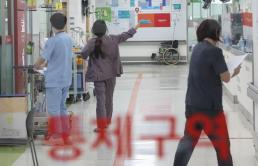
![[르포] 중력 6배에 짓눌려 기절 직전…전투기 조종사 비행환경 적응훈련(영상)](https://image.ajunews.com/content/image/2024/02/29/20240229181518601151_258_161.jpg)
